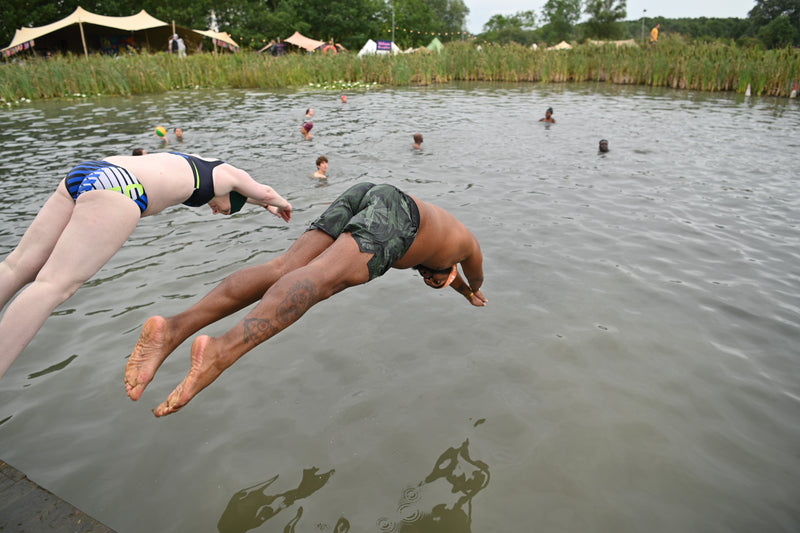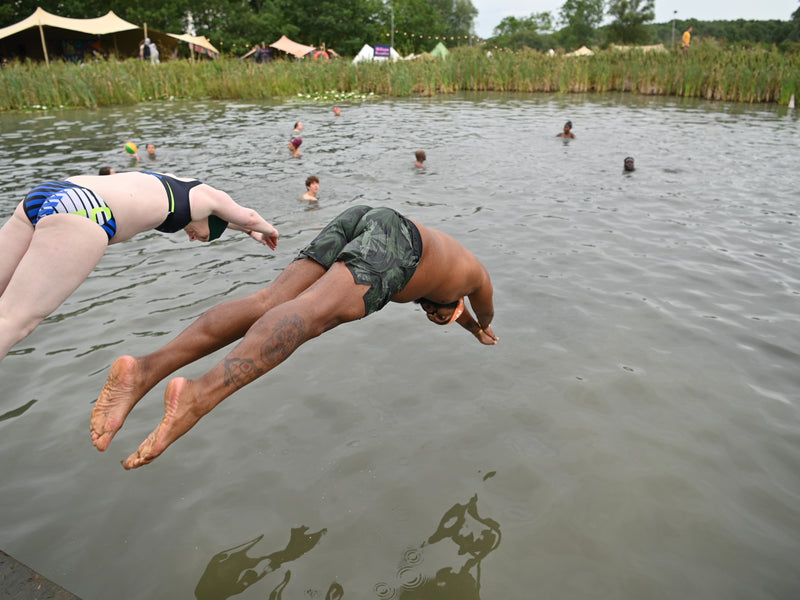We’ve talked a lot about the benefits of swimming — not just for your body, but for your wellbeing and mental health, too.
But there’s one way of swimming that doesn’t get a lot of attention, despite the physical and mental benefits it can give you.
We’re talking wild swimming in the Great Outdoors. And in particular, the benefits of swimming in cold water.
Here’s how cold water swimming can give your mind and your body a healthy boost:

Cold water can help your immune system
In 2016, a study in the Netherlands assigned 3,000 people to a variety of daily showers — with some practising a normal hot shower, and some practising a hot shower followed by a cold shower.
And they came to a surprising conclusion:
The people who immersed themselves in cold water were taking 29% fewer sick days from work.
On top of that, ice swimmers have been shown to report fewer upper respiratory tract infections — and patients who live in colder climates have reported fewer doctor visits due to respiratory problems.
It’s not conclusive proof. But it is evidence that taking regular dips in cold water can help your immune system to protect you from some illnesses.
Winter swimming burns more calories
Swimming in any environment is already one of the best exercises you can do. It trains multiple muscles in a low-impact environment, and it’s a solid cardio workout, too.
But when you take the sport into colder waters, it becomes an even more efficient way to train:
In a cold environment, your body temperature is lower than usual. Your heart has to pump faster, and your body has to work harder to keep your muscles warm.
All of this extra work and energy comes at a price: the extra calories you’re burning to maintain the temperature and efficiency your body needs.
So if you’re already a swimmer and you’re looking for ways to make your body work harder, switching to colder waters could be an easy way to intensify your sessions.
.jpg?v=1675169817)
Cold swimming gives your mood a natural boost
When your body hits cold water, it goes into a ‘cold shock’ response.
You’ve probably felt it yourself — especially if you’ve visited a beach in the UK.
This fight-or-flight response creates a release of adrenaline and the stress hormone, cortisol. But it also creates a surge of beta-endorphin hormones in the brain, which provides pain relief and a sense of euphoria.
Some swimmers have even reported a ‘cold water high’ that can last minutes to hours, using the naturally occurring chemicals in the brain to give a lasting boost to their mood from just a short dip in cold water.
And if that wasn’t enough, a study in 2005 found that a dip into water at 14°C created a 250% increase in dopamine — the neurotransmitter that affects pleasure and motivation.
But while this ‘cold shock’ reaction comes with plenty of happy chemicals, it also comes with a risk:
A sudden dip into cold water can put strain on your body that can sometimes be dangerous — especially if you have a heart condition or you start hyperventilating.
So before you start diving into any wintery waters, you should always talk to a doctor first. Take things slow, listen to your body, and make sure you’ve got the outdoor swimming gear you need to stay safe and aware such as swimming goggles.
Swimming in the cold can make you more resilient
Remember the cold shock that releases the stress hormone, cortisol?
It’s not just about the chemicals that your brain releases. It’s about how your body builds resistance to the shock of the cold — and how that resistance transfers to other types of stress.
A study from the University of Portsmouth showed that repeated immersion in cold water leads to a reduced stress response — reducing the body’s reaction by half after just 6 immersions of a few minutes each.
That’s great news for people who love cold swimming. But here’s where it gets interesting:
Those same researchers have shown that this resistance applies to other stressful encounters, like the low-oxygen environment of high-altitude climbing. And this endurance to physical stress could also apply to psychological stress, through a process called ‘cross adaptation’.
So what does that mean?
It means that cold water swimming teaches your body to handle stress. And when your body knows how to handle one type of stress, it could help you to become more resilient against the everyday stresses we face in modern life.



